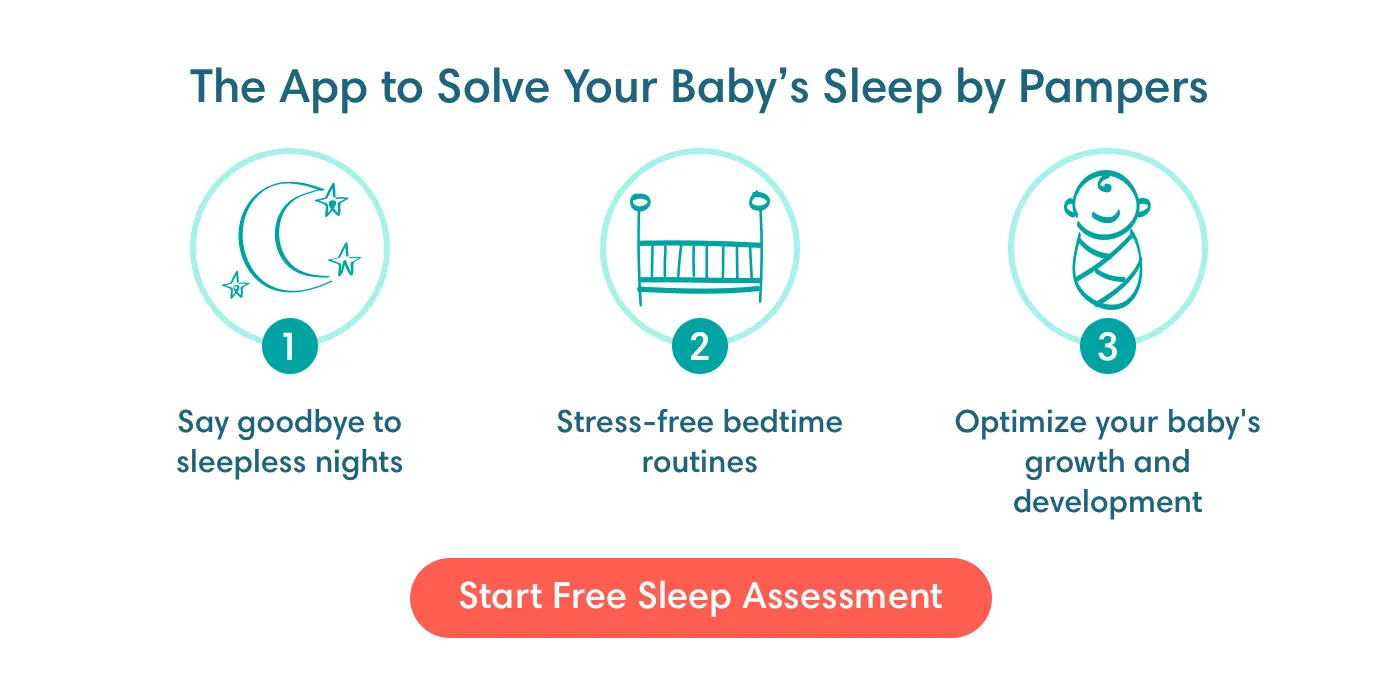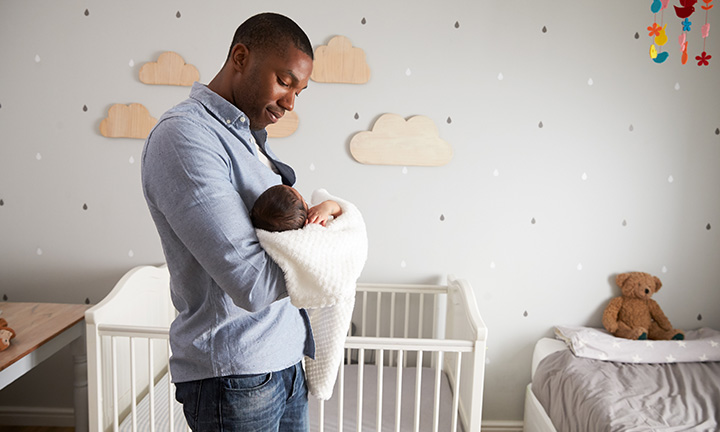
What Is Sleep Regression in Babies?
Sleep regression isn’t really an official term, but you may have heard it from other parents. In fact, because your little one’s sleep patterns are changing constantly as he or she grows and develops, it might be helpful to think of these changes as sleep progression rather than treating them as any kind of setback. Learn about what might cause your child’s sleep patterns to change, how long sleep regression can last and how to help your baby get back to more restful night-time sleep.
What Is Sleep Regression?
Your baby may have been sleeping beautifully for weeks or even months, and then – perhaps just when you were wondering if it’s too good to be true – suddenly everything changes. When people talk about sleep regression, they are usually referring to when your child starts waking up during the night and has trouble falling back asleep.
How Long Does Sleep Regression Last?
Sleep regression is usually temporary. It may go away just as fast as it came on, or it may last for a few weeks or months. In some cases, sleep training may help get things back on track sooner. Sleep disruption isn’t something that all babies go through, but most do experience it from time to time.
What Causes Sleep Regression?
There are many causes of sleep regression, and the triggers for sleep disruption could be different at different stages of a child’s development. So, sleep regression at 4 months or 6 months old might happen for different reasons to sleep regression at 8, 9, 10 or 12 months old. Here are some of the things that upset your little one’s sleep routine:
At What Age Do Babies Have Sleep Regression?
Sleep regression can happen at any time while your child is a baby or toddler. In fact, older children and even adults have periods of restless sleep too. Some parents have found that their baby’s sleep patterns tend to get disrupted between 6 and 9 months old when babies go through a series of growth spurts. From around 8 months separation anxiety often starts to set in. Also during this period from 6 months onwards, your little one tends to become more active. For example, the excitement of learning to crawl could make your baby more interested in exploring the world on all fours rather than settling down to sleep. However, keep in mind that changes in your child’s sleep routine are difficult to predict, and periods of sleep regression can strike at any age, be it 4 months, 10 months, 12 months old or beyond.
What Are Some Ways to Prevent, Manage or Stop Sleep Regression?
Sleep regression isn’t something that you can necessarily prevent. All children are different – some babies are naturally great sleepers and stay that way. Others have unpredictable biological rhythms that may lead to more easily disrupted sleep patterns. Each baby is an individual. Sometimes your little one’s ability to sleep through the night may even change with age and development. Although there is no sure-fire way to prevent or reverse sleep regression, here are some guidelines to help you manage it:
The Bottom Line
It’s normal for your baby to have occasional periods of sleep regression, when your child starts finding it difficult to sleep through the night despite previously mastering that skill. It could be that a family vacation or a case of the sniffles has disrupted your child’s schedule and is keeping him or her up at night, or just that your little adventurer is excited about learning a new skill and would rather be exploring than sleeping. Try not to worry. Your baby will return to his or her normal routine soon enough. In the meantime, encourage your baby to get a better night's sleep by doing your best to follow a consistent bedtime routine and help your baby wind down by keeping the environment calm and quiet. If you find that sleep regression isn’t disappearing or if you’re unsure what may be causing the change in your baby’s sleep pattern, ask your health visitor for advice. Eventually this period of disrupted sleep will subside, and you and your baby can look forward to waking up feeling more rested again.
The information in this article is based on the expert advice found in trusted medical and government sources, such as the National Health Service (NHS). You can find a full list of sources used for this article below. The content on this page should not replace professional medical advice. Always consult medical professionals for full diagnosis and treatment.












